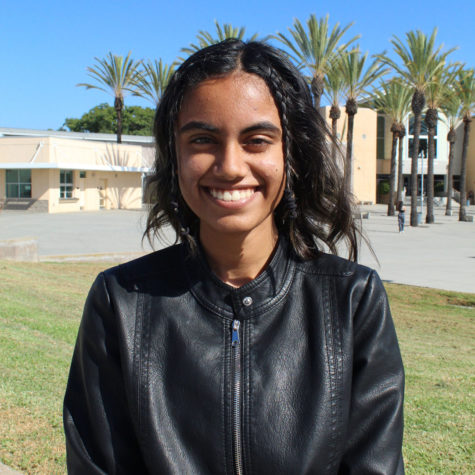Alumni create UC, CSU abortion access network
March 17, 2023
After the reversal of Roe v. Wade in June 2022, Winnie Xu (’22) and Devanshi Tomar (’20) knew they wanted to help. They knew they wanted to preserve abortion access in California, one of the 15 ‘safe haven’ states for reproductive health in the United States.
“Roe was reversed, and as people who were really passionate about doing something together, at that moment, we were like ‘let’s do something together,’” Tomar said. “This is the moment. We can do something about this.”
Senate Bill 24, a bill ensuring that student health clinics on UC and CSU campuses offer medication abortions, went into effect January 2023. The two decided to focus on the bill’s implementation.
“The UC system is united in the sense that they’re all affiliated with each other, but they run quite differently,” Xu said. “It tends to be Chancellors that are given enough power when charged with implementing Senate Bill 24.”
Xu, a freshman at UCLA, and Tomar, a junior at UCSB, have been close friends since their time at Westview together. During her time in high-school, Xu worked as a paralegal, specializing in public policy and advocacy for domestic and sexual violence survivors. As Editor-in-Chief of The Nexus, Tomar’s background lay in public health and journalism—now, she is a Microbiology and English double-major.
The two discovered disparities between the resources present at various campuses. Wanting to reform SB 24’s implementation, Tomar and Xu co-founded the Preserve Abortion Access: California Taskforce (PAACT), in July of last year.
“The resources, the personnel, and the level of reproductive health support at each campus are really different,” Tomar said. “Some campuses are located in the middle of an abortion desert. There are only a few campuses that have connecting medical schools that are connected to hospitals. We want to research and evaluate the implementation of SB 24 and then report those findings to UC and CSU leadership.”
Tomar and Xu began their work in PAACT by first emailing hundreds of professionals affiliated with reproductive rights, public health, or women’s health. Some professionals the two spoke with were Laury Oaks, the Chair of the Department of Feminist Studies at UCSB, Melissa Smith, the Director of Health Equity Initiatives at UCSB, and Paula Tavrow, the Director of UCLA’s Bixby Program in Population and Reproductive Health.
Afterwards, they formed an advisory committee made up of professors and researchers to help Tomar and Xu fine-tune their research ideas.
“One of our advisors aided the creation of our guidelines by introducing us to the three prongs of implementation evaluation,” Xu said. “Those prongs are if SB 24 is equitable, rapid, and 24/7. In terms of equitability, how are students who don’t have insurance accessing medication abortion? Or how are students who don’t live on campus having the same accessibility? In terms of rapidity, just because it’s implemented doesn’t mean each campus has an OBGYN.”
Tomar said that acknowledging these varying levels of support at each campus is essential for future lobbying for student health clinics. Tomar and Xu have introduced resolutions to student governments at UCLA, UC Davis, and UC Riverside about their campus’ commitment to publicizing SB 24.
“Our main priority is outreach and making sure people know about the fact that they can access [medication abortion],” Xu said. “Right now, since it’s so soon after the implementation of SB 24, we want to make sure the word is out there.”
The two then created a working group centered around research on SB 24 consisting of medical students, PhD students, graduate students, undergraduate students, clinicians, and providers.
What Tomar and Xu were creating through PAACT—an interdisciplinary network around reproductive rights—had never been done before.
“What people find in research and data collection and implementation studies often does not reach the people who are advocating for the same thing,” Xu said. “What PAACT does is bridge that gap by connecting advisors and professors who understand how abortion access works on a national and state level to help educate and empower students.”
Ultimately, Tomar and Xu hope that the network PAACT has created can help advise the UC Office of the President to create legislation and implement SB 24 in a way that is supported by student input and insight.
“What motivates me to continue this fight is the other people who are in the fight and specifically, having my best friend Devanshi there,” Xu said. “That’s been the greatest gift. There have been so many challenges, but having Devanshi, and having both of our past experiences and past stories to tell each other motivates us.”
Both within PAACT and outside, Tomar is thankful for her friendship with Xu.
“The best days of my life have happened during my friendship with Winnie,” Tomar said. “To know Winnie is to be inspired to do better, see life for more than you used to, and want life to be better than it is. In an advocacy space, that kind of energy in your colleagues is the most important thing to achieve the goals and vision of grassroots advocacy.”


